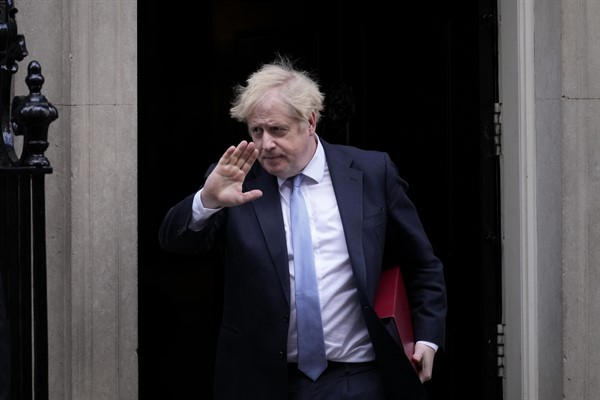The revelations of outrageous behavior by the civil servants and advisers closest to British Prime Minister Boris Johnson have become so predictable in their mixture of bureaucratic procedure with B-movie farce, that it now seems surprising when a day goes by without another incident splashed across the morning headlines. The leaks about raucous parties in offices used by Johnson’s team at 10 Downing Street during pandemic lockdowns began to filter through to journalists late last year. Ever since, the Conservative Party and the British government Boris Johnson has led since August 2019 have struggled to break free from an image of careless sleaze—one embodied in photos of Johnson himself wearing party hats while the rest of Britain struggled to cope with the pandemic.
For a time, it seemed as if the Johnson government’s robust support for Ukraine and an escalating crisis over the cost of living might draw the attention of the British public away from the revelations of his team’s illegal boozing. Yet this brief respite for Johnson came to a quick end after the police issued fines to those involved, including Johnson himself. A report issued by senior civil servant Sue Gray on May 25 setting out what these parties revealed about the British government’s leadership culture compounded public anger, which was enflamed even more by indications that Johnson tried to meddle with Gray’s investigation.
Yet even as Johnson lurches from crisis to fiasco, many in the U.K. and the European Union still seem reluctant to envision what a post-Boris Britain might look like and what its place in the world might be.

